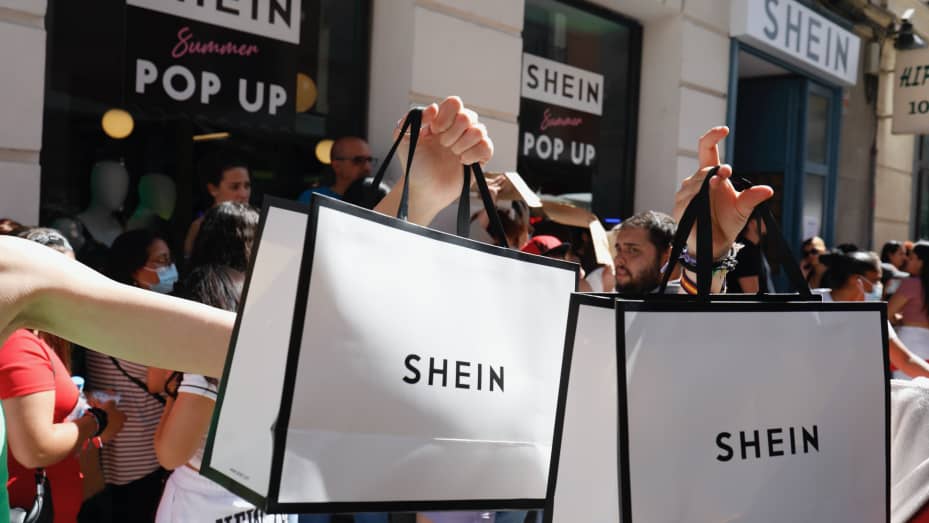Shein has denied a Reuters report that the Chinese e-commerce giant was seeking an initial public offering slated for later this year. Anonymous sources had told Reuters that the retailer had presented its IPO registration statement to the Securities and Exchange Commission. However, Reuters said at least two dozen U.S. representatives wanted the SEC to oppose the listing until it was verified that Shein’s supply chain did not include the use of forced labor.
- As of November 2022, Shein accounted for a 50% share of U.S. fast-fashion sales, up from 12% in early 2020, according to Bloomberg Second Measure.
- The fast-fashion brand also faces headwinds in the form of simmering tensions between the U.S. and China, possible tariff changes that would increase its prices and claims that its products are toxic and environmentally detrimental, The Washington Post reports.
By Melissa Cantor, Editor at LinkedIn News
China’s Shein denies U.S. IPO rumors
- Shein on Friday denied a Reuters report saying that it has registered with regulators for an initial public offering in New York.
- The sources told Reuters that the listing could happen before the end of the year.
- “Shein denies these rumors,” a Shein spokesperson told CNBC.

Chinese fast fashion giant Shein on Friday denied a Reuters report that said it has confidentially filed for an initial public offering in the U.S.
“Shein denies these rumors,” a Shein spokesperson told CNBC.
Founded in 2012 by Chris Xu, the brand rose to global prominence for its budget-friendly and trendy apparel. Shein was recently valued at $64 billion, according to Reuters.
But Shein, as well as Pinduoduo’s budget e-commerce app Temu, have been accused of exploiting trade loopholes to import goods into the U.S. without paying duties or making shipments subject to human rights reviews, according to a report from a U.S. House committee.
Shein told CNBC last week its policy is to “comply with the customs and import laws of the countries in which we operate” and that it will continue to “make import compliance a priority.”
Reuters noted the listing could make Shein the most valuable Chinese company to go public in the U.S. since Didi Global.
In May, U.S. lawmakers urged the SEC to crack down on Shein for allegedly selling clothes made by forced labor in Xinjiang, China.
“We have zero tolerance for forced labor,” a Shein spokesperson had told CNBC in May.
Shein recently hosted a group of influencers at its facilities in Guangzhou, China. While the influencers posted videos praising the company, dismissing allegations of forced labor, many viewers criticized the creators for repeating “propaganda.”
— CNBC’s Penny Chen contributed to this report.
BY Sheila Chiang CNBC











